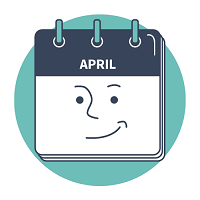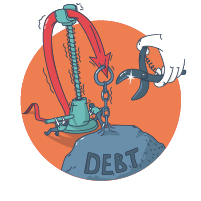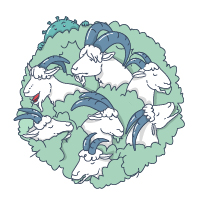You are using an outdated browser. Please upgrade your browser to improve your experience.
Article | 05 May 2020 |
QUICK LOOK
THE MARKETS

12.7%S&P 500 |
5.1%EURO STOXX 50 |
4.0%FTSE 100 |
4.0%CAC 40 |
9.3%DAX 30 |
6.8%BEL 20 |
3.8%FTSE MIB |
2.0%IBEX 35 |
4.3%TOPIX |

Cuts both ways
The Covid-19 crisis has brought rare examples of good news as well as bad. While the IMF (International Monetary Fund) made savage cuts to estimates for global growth, they also forgave debts of $214 billion owed by the world’s poorest countries. And now, as governments borrow more and more to finance rescue packages totalling trillions of dollars, there are increasing calls for a debt jubilee. That would mean writing off all the debt incurred during the current recession and wiping the slate clean. Perhaps some good can come from this adversity.

What price the barrel?
Swings in the price of oil broke all records, with dramatic upward spikes followed by dizzying plunges. At one point the price of oil in Texas was at minus $40 per barrel, meaning a buyer would be paid just to take it away! How did this happen? In early April OPEC and Russia agreed to an historic 10% production cut, but this was swiftly followed by fears of falling demand. Some forecasts predict oil demand could fall by up to 30% this year. And onshore and floating storage capacity is already overflowing.

Herd immunity
As pharmaceutical companies race to find the vaccine against Covid-19, the concept of ‘herd immunity’ has been raised. What is it and how does it help? Scientist believe that if enough members of a population- whether one country or around the globe- are infected by the virus and survive, the ‘human herd’ could become resistant to future outbreaks. Meanwhile, in a town in Wales (UK), herds of wild goats are enjoying their own immunity. With the streets empty, they have come down from the mountains to forage unchallenged in gardens and parks.